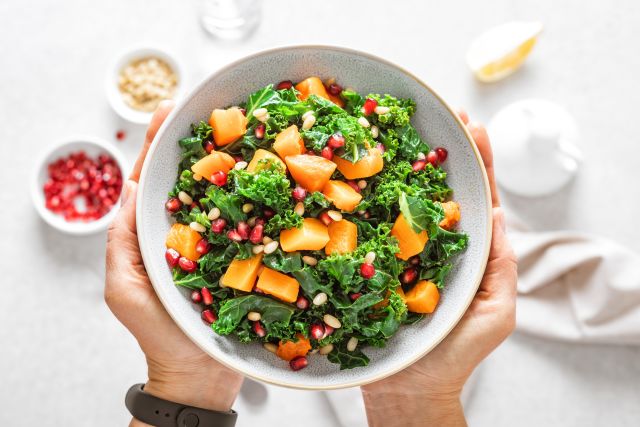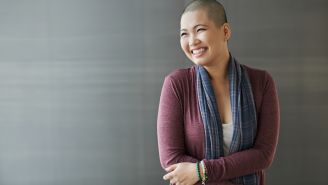Updated on April 10, 2024.
Some research suggests that your risk of certain types of breast cancer may be reduced by adding more whole fruits and vegetables to your diet.
A 2021 review of previous research published in the British Journal of Cancer found that a diet high in whole fruits and vegetables was tied to a 26 percent lower risk of ER-/PR- breast cancer.
This form of breast cancer is called hormone receptor negative (or simply receptor negative). That's because the cancer cells do not have certain proteins that attach to the hormone estrogen (ER) and the hormone progesterone (PR). These types of cancers tend to grow faster and act more aggressive than breast cancers that do have these proteins (known as ER+/PR+ breast cancer). Receptor negative breast cancer also occurs more often in younger people who have not gone through menopause (not having a menstrual cycle for 12 months in a row).
Researchers also found that eating high levels of whole fruits and vegetables was linked to 11 percent lower risk of ER+/PR+ breast cancer, the most common type of breast cancer. This type of breast cancer accounts for about 70 percent of breast cancers in women and 80 to 90 percent of breast cancers in men.
Past studies have also found a link between fruits and vegetables and risk for aggressive breast cancer. One 2019 study published in the International Journal of Cancer found that eating a diet high in fruits and vegetables was associated with about 21 percent decreased risk of human epidermal growth factor receptor 2 (HER2) breast cancer. About 20 percent of breast cancer cells have the HER2 gene, which makes them grow faster and spread more quickly throughout the body.
Consider your beverages
While you’re aiming to include healthy fruits and vegetables in your diet, you might want to consider your beverage choices, too.
Results from the British Journal of Cancer study showed that drinking fruit juice was linked to a slightly increased risk (about 4 percent) of breast cancer. Researchers think that’s because fruit juice contains a lot of sugar, which can raise your risk for type 2 diabetes and may make it harder to manage your blood sugar levels and your weight. Both diabetes and being overweight can increase inflammation in your body, which may increase your risk for breast cancer.
Choose whole fruit and water instead of juice. While fruit can help you feel fuller—while also satisfying cravings for something sweet—and may even help to lower your breast cancer risk.
Possible benefits of fiber and antioxidants
Researchers think whole fruits and vegetables may help protect against breast cancer because they’re high in fiber and antioxidants. That, in turn, may help your body work better to reduce the development of cancer cells. Antioxidants are substances that may help decrease damage to genes that may lead to cancer.
Aiming to increase consumption of whole fruits and vegetables should be part of an overall healthy diet. A healthy eating pattern also limits processed foods high in added sugars, salt, and saturated fat (which is solid at room temperature, like butter) in favor of whole foods and heart healthy, plant-based fats like canola or olive oil.







